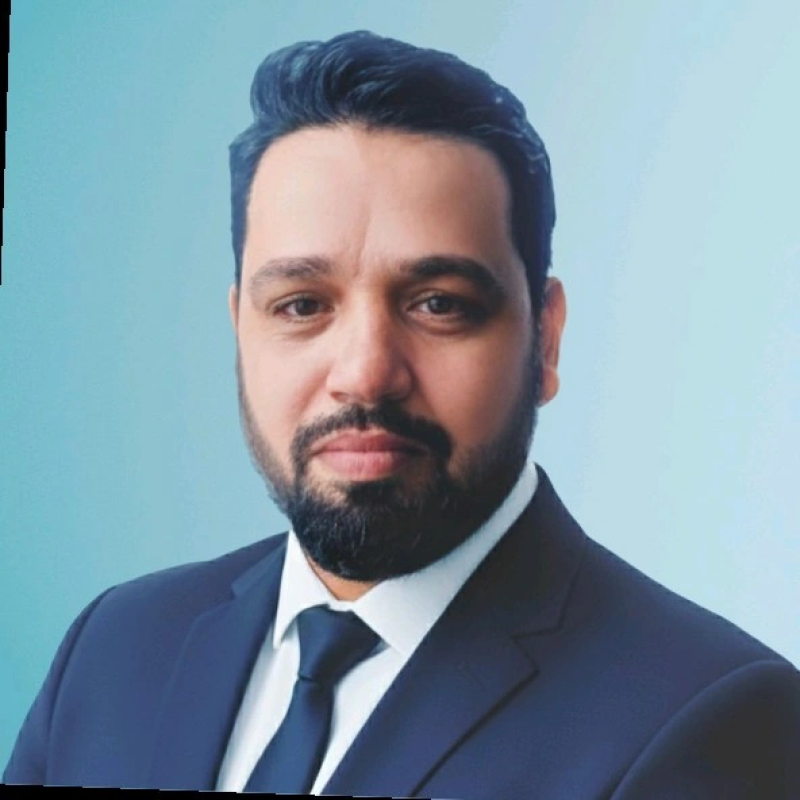Comparing SEO Frameworks: Generalist vs Specialist for Architecture and Design Firms
The Cost of Picking the Wrong SEO Framework
Most design firms make the same mistake: they hire a generalist SEO agency. The kind that says, “We do SEO for everyone.”
Here’s what happens next:
- Traffic goes up 📈
- But project inquiries don’t
- And you’re left wondering, “Why are we paying for clicks when no one’s booking?”
This isn’t a technical issue—it’s a framework issue.
Choosing the wrong SEO framework is like designing a glass house on desert sand. The design may look good on paper, but the foundation won’t support the outcome.
This blog breaks down:
- The core difference between generalist vs specialist SEO frameworks
- Why general SEO fails architects and designers
- How Adswom’s Search-to-SQL system outperforms “best practices”
- And how the wrong choice costs you time, money, and growth
Why SEO Frameworks Matter for Design Firm
Not all SEO is built on the same foundation.
- Generalist SEO frameworks are plug-and-play. Built for scale across industries—retail, SaaS, ecommerce.
- Specialist SEO frameworks are engineered for depth. Built for industries with longer cycles, nuanced authority, and trust-driven decisions.
For architects and interior designers, this difference is mission-critical. Why?
- Your sales cycle is long—months, sometimes years.
- Your buyers are visual-first—they don’t read 2,000-word how-tos; they want to see proof.
- Your authority is everything—clients don’t just hire service providers; they hire creative partners.
Generic SEO frameworks don’t account for this. They chase traffic, not trust. And that’s why they fail you.

Generalist vs Specialist Framework Thinking
Let’s break down the operating system each one runs on.
Generalist SEO Frameworks prioritize:
- Scale over specificity
- Keywords by volume, not intent
- Blog-first content (whether it converts or not)
- Link-building by quantity
- Traffic as the KPI
Specialist SEO Frameworks (like Adswom’s) prioritize:
- Industry nuance and client psychology
- Portfolio- and service-aligned keyword targeting
- Visual-first storytelling + performance content
- Backlinks from design-specific ecosystems (Dezeen, Houzz, ArchDaily)
- SQLs (Sales Qualified Leads) as the KPI, not traffic
It’s not about budget. It’s about fit.
What General SEO Misses About Architects & Designers
Here’s why generalist SEO falls flat for your firm:
- The Buyer Journey is Longer
Prospects don’t impulse-buy architecture. They browse portfolios, validate style, compare credentials, and consider budget. General SEO doesn’t map to that journey. - Your Content is Visual, Not Text-Heavy
Case studies, galleries, and testimonials matter more than “10 kitchen design trends.” General SEO doesn’t know how to rank visuals. - Authority = Differentiator
Your positioning isn’t about more content. It’s about better perception. General SEO frameworks rarely optimize authority signals like portfolio depth, schema markup, or press backlinks.
Result: you get traffic without traction.
Why Adswom Built a Specialist SEO Framework
We built Search-to-SQL because we saw too many talented firms bleeding time and money on generic SEO that never delivered leads.
Our framework isn’t a checklist. It’s a system built for one goal: turning search visibility into sales-qualified inquiries.
Search-to-SQL is built around:
- Visual-first optimization (image SEO, schema, galleries)
- Portfolio-driven content hubs (case studies, project deep-dives)
- Localized service landing pages (e.g., “Luxury Residential Architect in Gurgaon”)
- High-E-E-A-T content (Experience, Expertise, Authority, Trust)
- Design ecosystem backlinks (suppliers, collaborators, publications)
- Conversion pathways built for long-cycle buyers
This is how you build visibility and convert it.
5 Common Pitfalls of Generalist SEO Frameworks
If you’re working with a “we do SEO for everyone” agency, here’s what usually goes wrong:
- Unqualified Traffic
Ranking for “modern interior design ideas” brings students, not clients. - Blog Bloat
Dozens of generic posts with no connection to your portfolio or pipeline. - Ignored Visual SEO
Images = your strongest asset. General SEO rarely compresses, tags, or schemas them. - Irrelevant Link Building
Backlinks from random blogs or directories. Zero authority. - No Mid-Funnel Content
No strategy to nurture prospects from “interested” → “ready to hire.”
Framework Comparison: Standard SEO vs Adswom’s Search-to-SQL
| SEO Element | Standard SEO | Adswom’s Specialist SEO (Search-to-SQL) |
|---|---|---|
| Keyword Targeting | Broad, volume-first terms (“interior ideas”) | High-intent, service + location terms (“residential architect Gurgaon”) |
| Content Strategy | Blog-heavy, generic trends | Case studies, FAQs, project pages, buyer-intent content |
| Visual Optimization | Minimal image SEO | Compression, alt text, schema, portfolio storytelling |
| Link Building | General directories, low-value guest posts | Industry PR, supplier backlinks, design publications |
| Conversion Goals | Traffic + rankings | Sales-qualified inquiries, consultations, proposals |
| Reporting Metrics | Bounce rates, impressions | SQLs per service page, conversion ROI |
The Business Cost of the Wrong Framework
General SEO might look “cheaper” upfront. But the hidden cost is brutal:
- 12–18 months wasted on irrelevant rankings
- Traffic that doesn’t convert
- SEO “debt” that takes 4–6 months to fix
We’ve audited firms spending ₹5–10L/year ($10K–$20K) on generalist SEO—zero SQLs to show for it.
Compare that to firms using Search-to-SQL™:
- 3–4 months → mid-funnel leads begin
- 6–9 months → 3x–5x increase in qualified consultations
- 12 months+ → predictable, scalable pipeline of SQLs
That’s what fit gets you.
Choosing the Right SEO Approach for Your Firm
Use this filter when evaluating agencies:
| Question | Generalist SEO Answer | Specialist SEO Answer |
|---|---|---|
| Can you optimize my portfolio? | “We’ll add alt text.” | “Yes. We build SEO around your visual assets.” |
| How do you generate leads? | “We’ll grow traffic to your blog.” | “We target service + location keywords tied to buying intent.” |
| Do you know architecture? | “We work with all industries.” | “Yes. Here are 3 case studies of design firms like yours.” |
Generalist vs Specialist SEO for Design Firms
Q1: Why do generalist SEO agencies miss the mark for architects and designers?
Because they’re built for scale, not nuance. They chase keyword volume (“modern home ideas”) instead of intent-driven queries (“residential architect in Gurgaon”). That means more traffic, but fewer qualified leads.
Q2: What’s the #1 benefit of a specialist SEO framework?
SQLs — Sales Qualified Leads. A specialist framework is engineered to align with long sales cycles, visual portfolios, and authority-driven decision-making. It doesn’t just bring clicks; it brings clients.
Q3: Isn’t specialist SEO more expensive than generalist SEO?
Not when you factor ROI. Generalist SEO often wastes 12–18 months ranking for irrelevant terms. Specialist SEO delivers relevant leads within 3–6 months. The hidden cost of generalist SEO is lost opportunity.
Q4: Can a generalist agency ever get results for a design firm?
Yes — but results are usually accidental, not intentional. You’ll get blog traffic and maybe some leads, but nothing predictable. If you want a compounding lead engine, you need a specialist framework.
Q5: How long does it take to see results with a specialist SEO framework?
Expect traction in 90 days (mid-funnel leads). At 6–9 months, you should see 3x–5x more qualified consultations. By 12 months, SEO becomes a predictable pipeline — if the framework is built for your industry.
Framework Fit Drives Growth
This isn’t about tactics—it’s about strategy fit.
If your clients hire you for niche expertise, why would you hand your SEO to a generalist agency?
Specialist SEO benefits for design firms are clear:
- Relevant traffic, not vanity clicks
- Higher SQL conversion
- Stronger authority in your niche
- Less wasted budget and time
At Adswom, we don’t do “best practices.” We do best-fit practices.
Our Search-to-SQL system is built for one thing: turning your portfolio and expertise into qualified leads that compound over time.
👉 Book Your Free SEO Framework Diagnostic with Adswom
If your SEO framework isn’t producing SQLs, it’s not a framework—it’s a waste.
Writing team:

Les't communicate.
Recent Articles
 The Real Cost of Generic SEO for High-End Architecture and Interior Design Studios
The Real Cost of Generic SEO for High-End Architecture and Interior Design Studios
 Why Generalist SEO Fails Designers — And What to Do Instead
Why Generalist SEO Fails Designers — And What to Do Instead
 What to Look for in an SEO Agency: A Strategic Guide for Architects and Design Firms
What to Look for in an SEO Agency: A Strategic Guide for Architects and Design Firms

